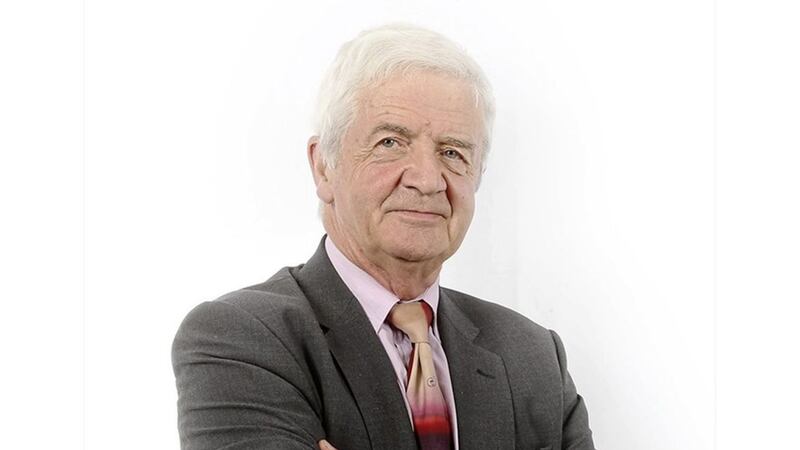Why is Micheál Martin treading softly with northern Sinn Féin?
As a resolute critic of southern SF, he refused to even consider joining them in coalition. Yet prior to his first northern visit as taoiseach, he was reluctant to join in the other parties' criticism of Bobby Storey's funeral.
On one level, he appears to be merely fulfilling his role as co-guarantor of the Good Friday Agreement, by steering Stormont clear of potential crises. While this partly explains his attitude, Martin (like all party leaders) has political ambitions, which go beyond his constitutional responsibilities. In that context, it is tempting to conclude that his visit to Belfast on Thursday was to launch his party's new northern policy for the next election campaign.
The taoiseach recognises that northern and southern SF are effectively two different parties which roughly reflect the two competing traditions in republicanism: hardline nationalism (in Stormont) versus left-wing politics (in the Dáil). It appears that his aim is to confront (and occasionally steal) their political policies, while taking ownership of, and modifying, their nationalist agenda.
There is ample evidence for the "two Sinn Féins" theory. Five years after the High Court ruled that Stormont had breached its duties by failing to adopt an anti-poverty strategy, the executive pledged (again) in January to "develop and implement an anti-poverty strategy". Social and economic issues appear secondary to sectarian point-scoring.
(Christians believe that the poor will be rewarded in the next life. Northern SF's record suggests they expect the north's poor to be rewarded in the promised heaven of a united Ireland.)
While southern SF's newly minted, left wing claims remain unproven in government, it has the Dáil's most talented front bench. But Martin is confident of handling them (although less confident following Barry Cowen's dismissal). He leads a Programme for Government, which contains at least some SF election promises and he can always expose SF's policy failings in Stormont.
However, since FF describes itself as The Republican Party, his wider aim is to capture the republican high ground. He gained a northern foothold by creating a partnership with the SDLP and then established a post-election Shared Island Unit in his department.
He will not confront SF on the north. Instead he hopes to subsume their united Ireland stance into his shared island approach.
In that way he hopes to blur the edges between the two, so that in the next election SF's second preferences will go to FF, rather than the Greens. (He is playing the green card, not the Green card.) Hence his attitude to Bobby Storey's funeral and his emphasis on the North-South Ministerial Council during his Belfast visit.
SF can hardly argue that their united Ireland stance (secured by a border poll) is somehow "more republican" than Martin's shared island concept, particularly since it is hard to determine what republicanism is any more.
It used to represent a non-sectarian, independent Ireland, as articulated by Wolfe Tone and the 1916 Proclamation. Today it can be whatever you want it to be.
It is largely an ill-defined blind faith in a series of contradictions, which recognises the legitimacy of partition, argues that Protestants and Catholics are different nations and believes that Ireland's economy should be determined by Germany as the leading EU state. (If republicanism is the soul of Ireland, the country would appear destined for hell when it dies.)
So if republicanism is now a form of historical putty, Martin can mould it as he wishes. Will his approach work? Is a protracted Tour of the North FF's best way to undermine SF's republican monopoly?
It will probably have some impact in terms of giving him the newly moulded republican high ground. However, Martin's main problem is not creating a united or a shared Ireland. His first challenge is to create a united Fianna Fáil. Unless he achieves that (and it is the more difficult task) the electoral rewards of sidelining SF may fall to someone else. That Leo Varadkar should be so lucky.









